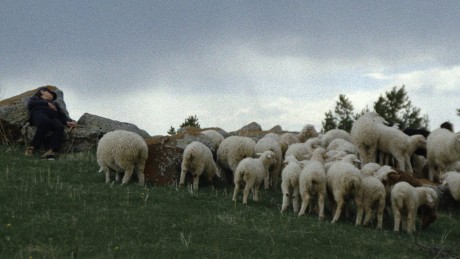


Yulia Grigoryants. Photographer/ 2
In the beginning of this month, December 2017, the Armenian photographer published a slate of photos and a text for ajjazeera, click the link below and you can see and read it all.
Here is some of Grigoryants text: In Gyumri time is measured as “before” and “after” the earthquake. On December 7, 1988, an earthquake measuring a magnitude of 7.0 on the Richter scale struck northern Armenia, killing at least 25,000 people and injuring hundreds of thousands more. A countless number of people were left homeless as high-rise apartment blocks collapsed like dominoes. Gyumri, Armenia’s second largest city, suffered much of the damage… the photo: Syuzanna, aged 9, plays inside old rusty cars in front of the abandoned building, where she lives with her family. Ten days ago, Syuzanna’s father committed suicide because of debts he was unable to repay…
Copyright: Yulia Grigoryants/ al jazeera
